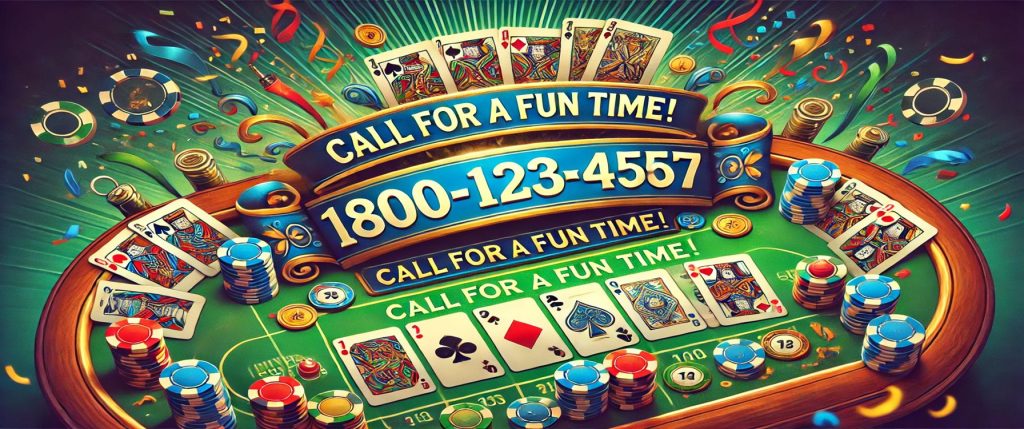
The Enchantment of Rummy: An Extensive Study Rummy is a card game that has been played for centuries and has a long and diverse history that dates back to the early 1800s. It is generally accepted that rummy developed from earlier card games like Conquian, which had their start in Mexico, even though the game’s precise origins are still somewhat unclear. The mechanics and goals of the game reflect Conquian, which is frequently considered the forerunner of contemporary rummy. Regional variations of rummy emerged as a result of the game’s numerous adaptations as it expanded internationally.
Rummy arrived in the United States by the late 1800s and quickly became very popular there, especially in gambling establishments and social circles. The game gave rise to a number of unique variations as it developed further, each with its own set of strategies & rules. A major turning point in the history of the game was the 1930s introduction of Gin Rummy, which quickly became a mainstay in American homes and was made popular by both socialites and celebrities. Following World War II, rummy’s appeal grew even more, & it became a popular game to play at social events & family get-togethers. In addition to being a popular card game, rummy has become a global cultural phenomenon with millions of players who appreciate its social aspects and captivating gameplay.
There are numerous variations of rummy to suit varying tastes and skill levels, so it’s not a single activity. With two players usually playing, Gin Rummy is one of the most popular variations. In this variation, players try to minimize the number of points in their hands while forming runs and sets of cards.
The game is popular among competitive players due to its fast-paced gameplay and strategic depth. Played with two decks of cards and frequently involving more than two players, Indian Rummy is another popular variation. The gameplay becomes even more complex in this version, which places an emphasis on melding cards into legitimate sets & sequences. Canasta, which adds distinctive scoring systems and gameplay mechanics, and Kalooki, which combines aspects of Indian & Gin Rummy, are two other noteworthy variations. The rules governing each variation can drastically change the way the game is played.
Players must take into account various strategic factors, such as the fact that some versions permit wild cards while others do not. There is a version of rummy that is appropriate for everyone because of its diversity, whether players are serious competitors seeking a demanding experience or casual players seeking a fun way to kill time. Rummy is more than just a game of skill and strategy; it also requires a certain amount of manners that improves the experience for all players. Treating other players with respect is a basic component of rummy etiquette rules.
This entails waiting patiently for your turn, not making too much commentary on other people’s plays, and abstaining from any actions that might be interpreted as unsportsmanlike. Recognizing opponents’ strong plays can improve the mood and promote player unity. Being aware of the game’s tempo is another crucial component of rummy etiquette. In competitive situations, it can be tempting to spend a lot of time strategizing, but it’s crucial to maintain the game’s flow. In order to prevent needless delays, players should be ready for their turns. Also, you can avoid miscommunications and conflicts by fully comprehending the rules before playing a game.
Players can make their rummy experience pleasant & considerate of all other players by following these etiquette guidelines. The ultimate in competitive play, rummy tournaments bring together talented players to display their skills in a controlled setting. These events can be anything from neighborhood get-togethers at community centers to major contests hosted in casinos or online.
Tournaments frequently consist of several rounds of play, with competitors fighting for rewards and recognition according to how well they perform. These events’ competitive nature raises the stakes and gives the game an exciting new dimension. In competition situations, players must modify their tactics in response to the playing styles of their rivals in addition to depending on their own abilities. This calls for both a thorough comprehension of the game’s mechanics & the ability to observe well in order to successfully predict moves and counterstrategies. A lot of tournaments also have special regulations or variations that can make things more difficult for players.
Therefore, rummy tournaments are a great way for players to improve their abilities while experiencing the excitement of competing against other enthusiasts who share their interests. Rummy’s capacity to promote social ties among players is among its most alluring features. Rummy encourages interaction and camaraderie, whether it is played at home with loved ones or in a relaxed atmosphere with friends. Because the game is interactive, players are encouraged to interact with one another, exchange tales, & make enduring memories at the table.
This social aspect is especially noticeable during holiday celebrations or family get-togethers, when playing rummy frequently turns into a treasured custom. Also, rummy is a great option for intergenerational socializing due to its accessibility. Because players of all ages can take part, it’s the ideal pastime for families who want to spend time together. Regardless of skill level, everyone has an opportunity to participate thanks to the game’s combination of strategy & luck.
Players fortify their bonds through laughter and shared experiences as they progress through the rounds of play, in addition to enjoying the excitement of competition. The introduction of technology has changed how people play classic games like rummy in recent years. Online platforms have become well-liked rummy playing locations, enabling players to interact with people worldwide without being limited by geography. To accommodate a range of player preferences, these online venues provide a variety of formats, from friendly games to competitive tournaments. Players can enjoy their favorite game at any time and from any location thanks to the ease of online rummy, which makes it more accessible than ever.
As online rummy has grown in popularity, new features have also been added to improve gameplay. With features like leaderboards, real-time chat, and customizable avatars, many platforms create an immersive experience that mimics the social elements of in-person play. For beginners wishing to get a feel for the game before playing competitively, online rummy frequently offers practice modes and tutorials. In addition to maintaining the essence of a classic game, this contemporary take on it resurrects it for a new generation of gamers who look for entertainment and social interaction in their gaming experiences.
Playing games like rummy can improve cognitive function and mental health in a big way. Rummy demands strategic thinking, memory retention, and problem-solving abilities, all of which increase mental acuity & brain activity. Players develop critical thinking skills that can be applied to better decision-making in daily life as they examine their hands & predict the movements of their opponents. As players plan their moves several steps in advance, the game’s emphasis on strategy also helps players to cultivate patience and foresight. Beyond its cognitive advantages, rummy is a useful tool for reducing stress.
Playing with others promotes social interaction and a sense of belonging, both of which are critical for emotional health. Friendly competition can foster relaxation through laughter and companionship while offering a fun diversion from everyday stressors. By providing a means of social interaction and cognitive stimulation, rummy not only provides entertainment but also has a positive impact on mental health. Beyond simple amusement, rummy has deep cultural significance as a reflection of customs & values in many different communities around the world.
Rummy and other card games are a staple of celebrations and family get-togethers in many cultures. It helps to strengthen bonds between family members and friends while transferring customs from one generation to the next. In this situation, rummy transcends its role as a game and becomes a communal activity that fortifies cultural identity & familial ties. Rummy has also been used in literature and the media as a representation of social interaction, wit, & strategy. Card games are frequently mentioned in books, movies, and TV series as metaphors for the intricacies of interpersonal relationships or life in general.
The way that rummy is portrayed culturally emphasizes how it reflects human nature, emphasizing concepts like resilience, teamwork, and competition. Consequently, rummy continues to be ingrained in society as a cultural artifact that appeals to people of all ages as well as a popular hobby. To sum up, the evolution of rummy from its historical origins to its contemporary variations demonstrates its timeless appeal as a game and a social pastime.
Rummy continues to be a beloved past time that unites people while testing their abilities because of its many variations, deep cultural significance, and beneficial effects on mental health. Rummy is a timeless classic that gracefully changes with the times while maintaining its essential elements, whether it is played competitively in tournaments or casually among friends.





